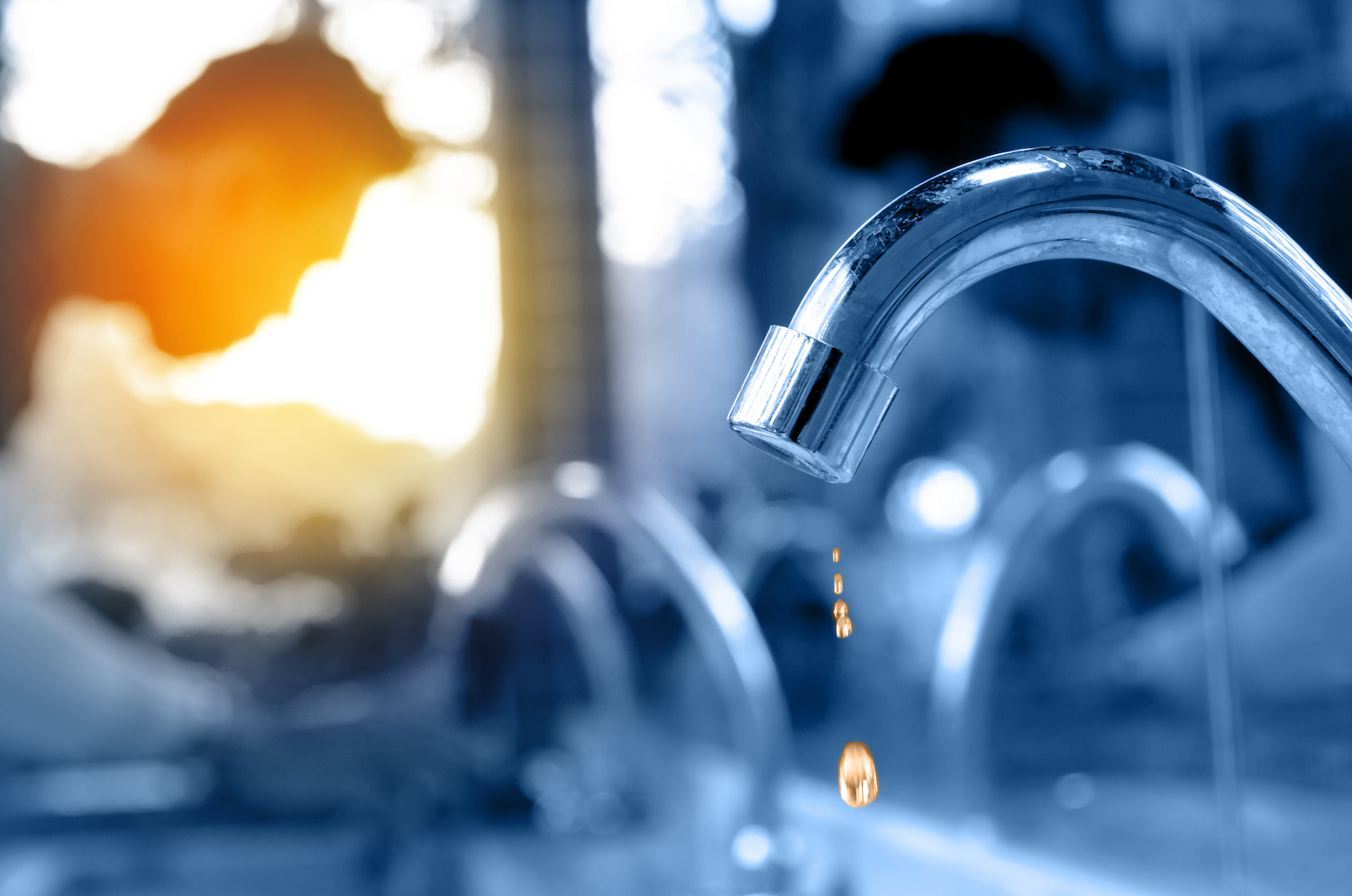The climate crisis is one of the most pressing challenges facing society today. As extreme weather events increase in frequency and communities face mounting resource scarcity, the need for urgent action has never been clearer.
Businesses have a vital role to play in driving sustainability, not only within their own operations but through supporting their customers and suppliers to do the same. There are a number of areas that businesses can focus on to achieve this aim, including reducing electricity use and travel – but an often overlooked area that is also worth targeting is water use. The energy required to extract, treat, distribute, heat, and re-treat water leads to the emissions of millions of tonnes of greenhouse gases every year.

Jo Dow, Chief Executive, Business Stream
Water is an energy intensive resource and there are benefits that can be realised by reducing consumption levels. By using less water businesses can contribute towards their own sustainability goals, the UK Government’s net zero target, and make savings across both their water and energy bills.
The benefits
Reducing business water usage through efficiency improvements does not just reduce energy demand, it also decreases wastewater volumes which require energy-intensive treatment, delivering further sustainability gains.
In addition, the heating of water constitutes a significant driver of overall energy bills and carbon footprints for businesses across all sectors. Approximately 20% of a typical gas-heated office building’s energy bill stems from heating water for restroom facilities, taps, showers, kitchens, and cleaning processes. With commercial energy costs rising by over 50% this year alone, there has arguably never been a better time for companies to minimise water heating.
By cutting hot water demand through appropriate efficiency interventions, substantial savings on utility costs can be achieved – helping businesses to not only reduce their environmental impact but benefit from financial savings too.
Where to start?
We’ve been working with businesses since 2008 to help them use water efficiently and there are some key steps and considerations we’d advocate businesses take to make savings.
Monitor consumption levels: The first step is to understand water use. By installing smart meter technology, such as Automated Meter Readers (AMRs), businesses can establish accurate baseline tracking of water consumption across their facilities.
These small devices send meter readings in 15-minute intervals to a centralised point via either a wired or wireless connection to provide almost real-time data. Notably, they do not require physical intervention from onsite personnel and the data can be accessed 24/7, 365 days of the year. And while manual meter readings are still used, AMRs provide a far more effective, time efficient option for most organisations. Businesses can use AMR data to compare and benchmark their sites, identify any issues promptly, forecast future costs and develop more in-depth water and carbon reduction plans.
| Case study: Delivering financial and environmental savings for Network Rail
Business Stream has been Network Rail’s water supplier in Scotland since the market opened in 2008, and now services all of the rail infrastructure company’s major rail stations in Scotland and England, as well as its operational sites around the country. Network Rail’s site at Slateford Road in Edinburgh is a large operational rail depot with numerous buildings which have been developed, removed or redeveloped over time. This has contributed to a complex infrastructure plan, which can make locating pipes and other underground services a complicated exercise. After installing an Automatic Meter Reader (AMR) at the site in June 2021, Business Stream analysts quickly spotted an irregular water usage pattern, at odds with the normal water use expected from a typical rail yard. This suggested that the site could have a leak, or multiple leaks, which required further investigation. Business Stream’s water experts worked with Network Rail to trace connection-by connection and building-by-building all of the assets covered by the AMR. Following an investigation on site, the team located a faulty meter, and an initial leak, which was losing 504 litres of water per hour. Further investigation found a second, larger leak on a fire hydrant which was wasting a significant amount of water – 4,392 litres per hour. Engineers located the issue using a combination of highly sensitive sounding equipment and signal devices to pinpoint the problem pipes beneath ground. By repairing these leaks, the site’s carbon use was reduced by over 1.24kg per hour and costs by over £100,000 per year. |
Undertake maintenance checks: Regular water maintenance checks can help to identify issues, such as leaks, before they become a costly problem. If left undetected, leaks not only waste water and money, but they can cause serious damage to a business premises over time. In addition, it’s also worth checking water pipes to ensure they are insulated well, to avoid the use of excess energy to heat the water running through the pipes.
By undertaking these types of maintenance checks regularly, businesses can help to ensure they’re operating efficiently and that water and energy isn’t being wasted.
Invest in water efficient technology: There’s a huge range of water efficiency technologies available to help businesses reduce their water and energy use. Switching to certified water efficient taps, cleaning equipment and irrigation systems or even installing an eco-boiler can all have a significant impact on water use. Simple tap aerators alone can reduce tap water flows by 20-30%.
In addition, using the correct setting on heating systems and making sure water heaters are turned off when premises aren’t in use, such as over weekends, can help to reduce energy and water use.
Consider adopting circular water sources: Businesses can optimise industrial processes, cooling systems, boilers, and other equipment by identifying ways to recycle and reuse water. Rainwater harvesting facilities and infrastructure to utilise natural precipitation for non-drinking usage like landscaping irrigation, for example, can help to reduce water use and support businesses’ circular economy ambitions.
Engage colleagues and customers: Finally, by raising awareness on how colleagues and customers can help to conserve water, such as turning off taps, taking shorter showers, immediately reporting leaks, and limiting equipment rinsing times, businesses can deliver even better results. Behavioural change can be impactful and to do this effectively businesses should celebrate achieved reductions and milestones throughout the organisation, helping to build an internal culture that recognises and promotes sustainability as a core priority.
For many companies, relatively low-cost fixes such as monitoring consumption levels, undertaking water maintenance checks, installing water efficient devices, and running colleague engagement campaigns will be enough to make significant savings. Larger capital projects such as installing recycled greywater capabilities and optimising complex industrial processes require larger upfront investment and are more relevant for businesses that have a greater demand for water use through their processes, but for those businesses where this applies, these measures can help to deliver extensive long-term cost and carbon savings.
Help is at hand
At Business Stream, we work with our customers to identify opportunities to make financial and environmental savings by using water efficiently. To demonstrate our commitment, we’ve pledged to help our customers reduce their water use by up to 20% and in the past year alone we’ve delivered over £31million in savings for our customers and saved over 7billion litres of water.
And to ensure we practice what we preach, through the implementation of comprehensive monitoring systems, equipment upgrades, and colleague engagement initiatives, we were the first water retailer to achieve the Waterwise Water Efficiency Checkmark for our Head Office in 2019, recognising our commitment to implementing the right technologies, signage and education to ensure we’re using water as efficiently as possible.
We’re passionate about reducing our impact on the environment and recognise that we play a key role in helping our customers to do the same. While the specific interventions may differ, all industries can benefit from optimising water efficiency. With the need to act on the climate crisis and increased energy prices impacting all sectors, the business case for enhanced efficiency has never been stronger.
Read more here: business-stream.co.uk
Related articles:
Global Water Works and H2O Global News partner to connect the world with water experts, organisations and technologies







